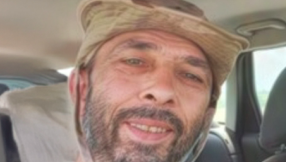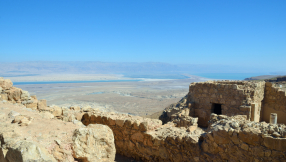
The Church must move beyond "mass production religion", apologist Amy Orr-Ewing has said.
Addressing the Evangelical Alliance's Leadership Conference 2022 on Thursday, Orr-Ewing likened some of the practices in the Church to large-scale agriculture.
She said it was "leaving people empty with tasteless food", disconnected, "exhausted" and "jaded by the systems and processes, metrics and mechanics of the promises of mass production religion".
"From the 20th century and onwards, within agriculture we've sought to have mass production, machine-like agriculture, and it's been a bit like that in the Church," she told the online conference.
"We've had this kind of mechanised, mass-production approach to religion, and what that does to agriculture, similarly to within the Church, is to fight the seasons so that we can just mass produce, so that we can consume, consume, consume, and within agriculture that's destroyed soil, it's yielded fruit that isn't so tasty."
She cautioned that it was unrealistic for church leaders to expect to live out their ministry in a state of "perpetual harvest", and that the storms of life should be embraced as part of the path to fruitfulness.
"The challenges of the last two years, I sense He is saying to all of us, are not wasted," she said.
"The feelings that perhaps things have declined, been cut back, blown away or snapped off are within His sovereignty. What feels like decline or maybe even disaster may not be if we can willingly yield to the tender hand of the gardener."
She continued, "Let the storm break away any of those branches that need to go. Resist the impetus to insist on a perpetual summer or constant harvest if we're going to agree that God is good.
"Resist that kind of relentlessly positive approach to religion and welcome this season that you are in."
She added, "We're in a moment in the UK when we need the Lord to come in power by His Spirit, on His Church. These are perfect conditions for Him to move in power."
During the conference, Kieran Turner, part of the Evangelical Alliance Scotland team, interviewed SNP Cabinet Secretary Kate Forbes on how she lives out her Christian faith in public office.
She told Turner that she has always sought to be open about her faith.
"We all know the baggage that comes with being identified as Christian, or even just identifying as going to church," she said.
"One thing I've always tried to be clear about in my public communication is that, firstly, being a Christian is not an afterthought. It's not a hobby like swimming or going to the gym or cooking.
"It's the most fundamental building block of my identity. It's not something I can take off and put on to Christians, to others."
Forbes said that Christians were not called to live as "hermits" who are "stuck in a cave", but instead to be "out there" as salt and light "in a world where very few share our views".
Reflecting on her experience of living in India for eight years, she said it had given her "an understanding of what it is to be distinctive in a world that doesn't share your faith but where you have every opportunity to seek the good, to seek the peace of those with whom you live in harmony".
But she also said that Christians "have got to communicate in a way that people actually understand" and "not to just speak to one another in bubbles".
She ended by saying that in the emerging post-pandemic landscape, Christians needed to be intentional about bringing a message of hope to "a world that is desperate to hear hope".
"For those of us who believe in hope in a hopeless environment, there's never been a better opportunity to offer hope to those who are fighting for hope," she said.
"If you think how tough the pandemic has been, the impact on mental health, the increase in loneliness and isolation, particularly for young folks whose lives have been upended, for businesses that have struggled to survive, they've come out the pandemic into a cost of living crisis where they're worried about their future. We're living through a geopolitical crisis with a war in Europe.
"There are not very many candles burning very brightly and yet we believe that our hope is not based on what we see and we feel and we experience.
"And I think the world, the United Kingdom right now, is crying out for hope.
"We believe that we have a message that gives hope. So now is the time in my view to be absolutely open, committed, determined to offer that message of hope."
Carl Trueman, theologian and author of The Rise and Triumph of the Modern Self, raised the issue of sexual identity politics and the impact on children.
He said the emerging ideology represented "a fundamental transformation not simply in the way that society thinks about sex and sexuality but in the way society thinks about what it means to be a human being".
"Because if society revises what it means to be a human being, everything changes," he said.
"It presents a peculiar challenge to the Church because for many centuries what we might describe as the dominant ethic of the West, the moral code, the means by which we all live together, has been broadly speaking compatible with Christianity.
"Yet we now face an era where the terms of engagement in the civic square, the terms of fully accepted membership in civil society, are increasingly running opposite, are increasingly antithetical, to those which embody basic Christian anthropology and Christian ethics."
While Christians could be disheartened in the face of the changes, he said that there was hope to be found in believing that their work will one day bear fruit, even if this is not in their lifetime.
He said it was about "abandoning the hope of a quick victory and setting our sights on the long game".
"I am resigned to losing every significant cultural battle of my generation ... and yet I'm still going to engage in them. Why? Because it isn't about me," he said.
"Hope comes from taking the long vision - not the long vision that looks towards the end of my life, but the long vision that looks generations down the path - if the Lord does not return."
The conference can be watched in full online.













